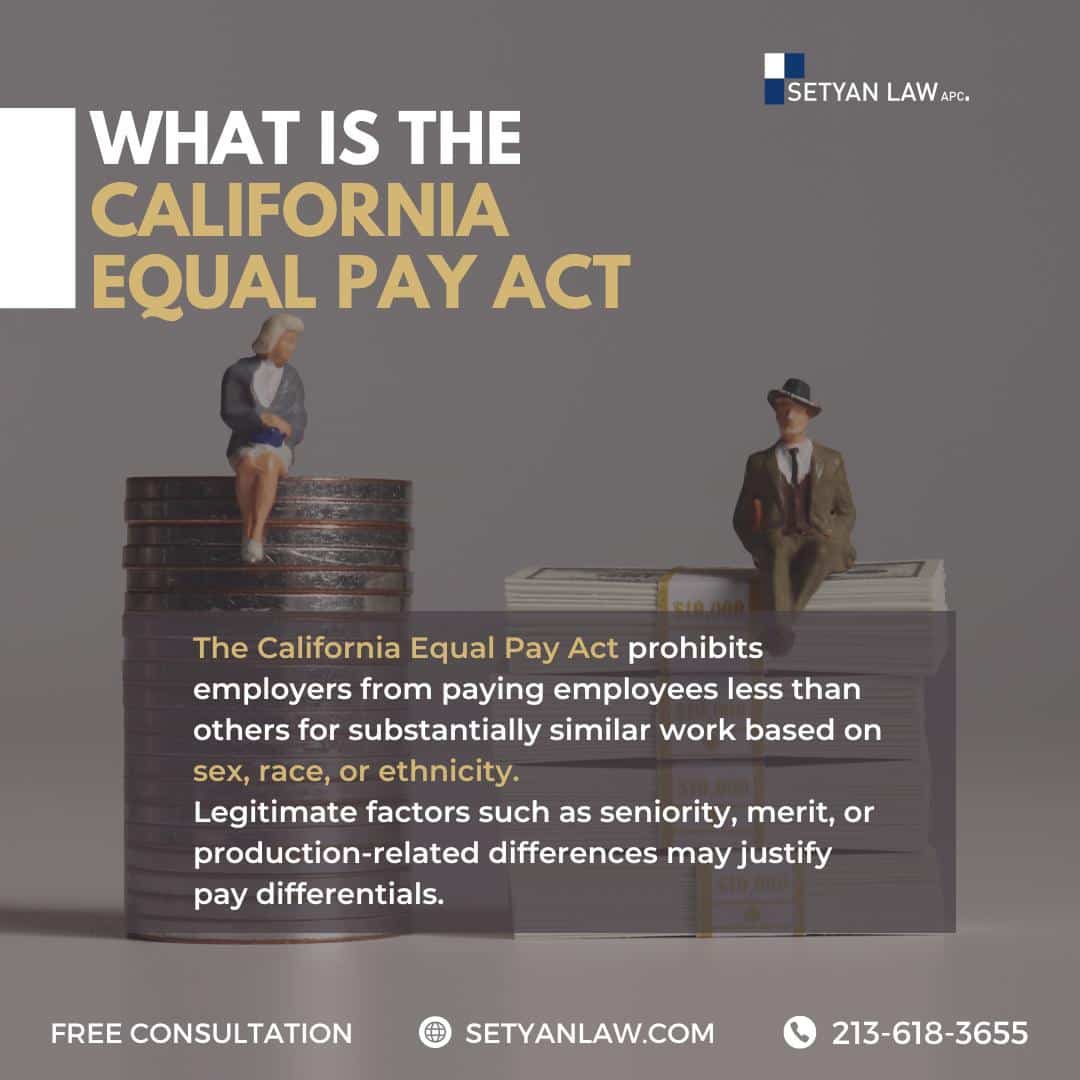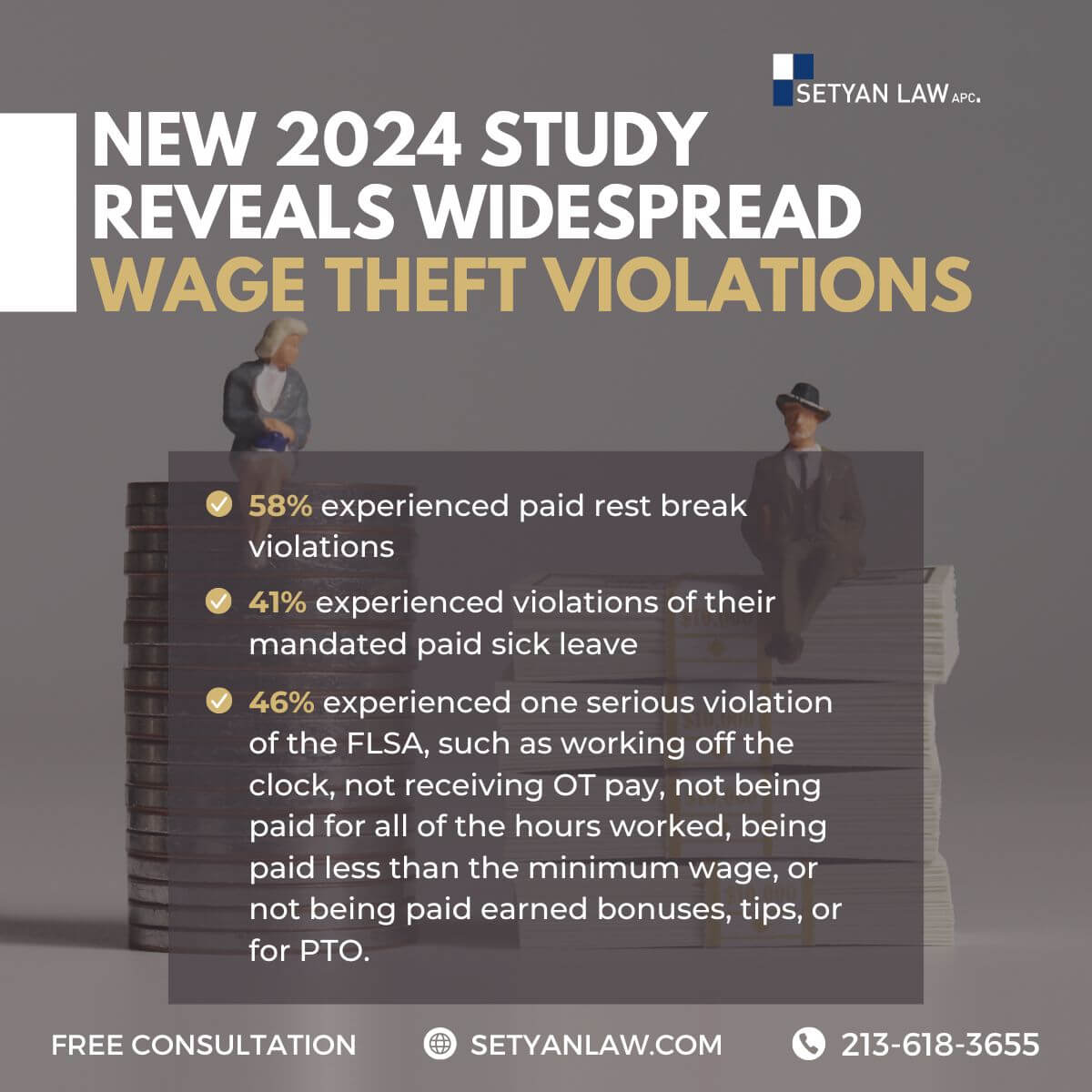Updated June 14, 2025
Understanding the California Equal Pay Act: Your Rights
The California Equal Pay Act is a significant piece of legislation that aims to eliminate wage disparities based on gender, race, and ethnicity. This law is designed to ensure that employees receive equal pay for substantially similar work, thereby promoting fairness in the workplace. Understanding the nuances of this law can empower employees to advocate for their rights effectively.
The Foundation of the California Equal Pay Act
The California Equal Pay Act, first established in 1949, laid the groundwork for equitable pay practices in the state. Initially, it mandated that employers could not pay individuals less than their counterparts of the opposite sex for equal work performed at the same establishment. However, this framework had limitations that allowed for wage gaps to persist, as employers often found loopholes to justify unequal pay.
Key Developments in the Act
In 2015, the California Fair Pay Act (SB 358) was enacted to strengthen the original Equal Pay Act. This amendment introduced several critical changes:
- Substantially Similar Work: The law now requires equal pay for employees performing "substantially similar work," which considers skill, effort, and responsibility, rather than strictly equal work.
- Location Flexibility: The requirement that employees must work at the same establishment to compare wages has been eliminated. This means that employees at different locations can still be compared for wage equity.
- Stricter Justification Standards: Employers must provide legitimate reasons for any pay discrepancies, making it more challenging to justify unequal pay based on factors other than gender, race, or ethnicity.
These amendments reflect a commitment to closing the gender wage gap, which, as of 2015, had women earning only 80 cents for every dollar earned by men.
Understanding Substantially Similar Work
The concept of "substantially similar work" is central to the California Equal Pay Act. It refers to jobs that, while not identical, require similar skills, efforts, and responsibilities.
Defining the Criteria
To determine if two positions are substantially similar, consider the following criteria:
- Skill: The experience, education, and training necessary to perform the job.
- Effort: The physical or mental exertion required for the job.
- Responsibility: The level of accountability and duties associated with the position.
- Working Conditions: The environment in which the work is performed, including factors like hazards and physical surroundings.
By assessing these factors, employees can better understand their rights and identify potential wage disparities.
Legal Protections Against Retaliation
One of the significant enhancements of the California Fair Pay Act is the explicit protection against retaliation for employees who seek to enforce their rights under the law.
What This Means for Employees
- Right to Discuss Wages: Employees are allowed to discuss their wages with co-workers without fear of retaliation from their employer. This transparency is crucial for identifying wage disparities.
- Protection from Retaliation: If an employee raises concerns about wage inequality or participates in an investigation related to the Equal Pay Act, they are protected from adverse actions by their employer.
Understanding these protections can help employees feel more secure in advocating for their rights.
How to Bring a Claim Under the Equal Pay Act
If you believe you have been subjected to wage discrimination, knowing how to bring a claim is essential.
Steps to File a Claim
- Gather Evidence: Collect documentation that supports your claim, such as pay stubs, job descriptions, and records of similar positions within the company.
- Determine Comparators: Identify employees who perform substantially similar work and are receiving different pay.
- File a Claim: You can file a claim with the California Labor Commissioner’s Office or pursue legal action in court. It’s advisable to first consult with an attorney specializing in employment law for guidance.
- Follow Up: After filing, the Labor Commissioner’s Office will investigate your claim and determine if there is sufficient evidence of a violation.
Important Deadlines
- Claims must be filed within two years of the alleged violation, or three years if the violation is deemed willful. Each paycheck reflecting unequal pay is considered a separate violation, potentially extending the timeframe for filing.
Understanding the Employer’s Defense
Employers have specific defenses they can use to justify wage discrepancies.
Legitimate Factors for Pay Differences
Under the California Equal Pay Act, employers may defend against claims of wage discrimination by demonstrating that the pay difference is due to:
- Seniority: Length of service within the company.
- Merit: Performance-based evaluations or achievements.
- Production Systems: Pay structures based on output or productivity metrics.
- Bona Fide Factors: Job-related factors such as education, training, or experience that are not derived from a discriminatory basis.
Employers must prove that these factors account for the entire wage difference to successfully defend against a claim.
The Importance of Record-Keeping
Employers are required to maintain records related to employee wages and classifications for a minimum of three years.
Implications for Employers and Employees
- Transparency: Proper record-keeping enables transparency in pay practices and can help defend against claims of wage discrimination.
- Employee Awareness: Employees should be aware of their rights to request information about pay scales and wage practices within their organization.
Frequently Asked Questions
What Should I Do If I Suspect Wage Discrimination?
If you suspect that you are being paid less than your counterparts for substantially similar work, take the following steps:
- Document your findings and gather evidence.
- Discuss your concerns with your supervisor or HR department.
- If necessary, seek legal advice to understand your options.
Can I Remain Anonymous When Filing a Claim?
While the Labor Commissioner’s Office will keep your identity confidential during the investigation, it may be necessary to disclose your identity if further action is required.
What Are the Potential Outcomes of a Claim?
If your claim is successful, you may be entitled to:
- Back pay for the wage difference.
- Interest on the unpaid wages.
- Liquidated damages, which can equal the amount of unpaid wages.
Conclusion: Empowering Yourself Under the California Equal Pay Act
Understanding the California Equal Pay Act is critical for employees who want to ensure they are being compensated fairly. By knowing your rights and how to bring a claim, you can advocate for yourself and contribute to a more equitable workplace.
If you believe you have been a victim of wage discrimination, don’t hesitate to reach out for legal assistance. You have the right to fair pay, and there are resources available to help you navigate this process. Remember, knowledge is power, and being informed is the first step toward achieving justice in the workplace.
For personalized assistance, consider consulting with a legal wage claim expert who specializes in employment law. They can provide guidance tailored to your specific situation and help you understand your rights under the California Equal Pay Act.
Call Setyan Law at (213)-618-3655 to schedule a free consultation.








